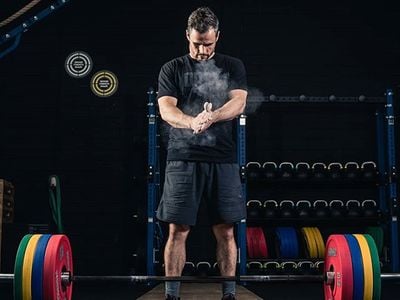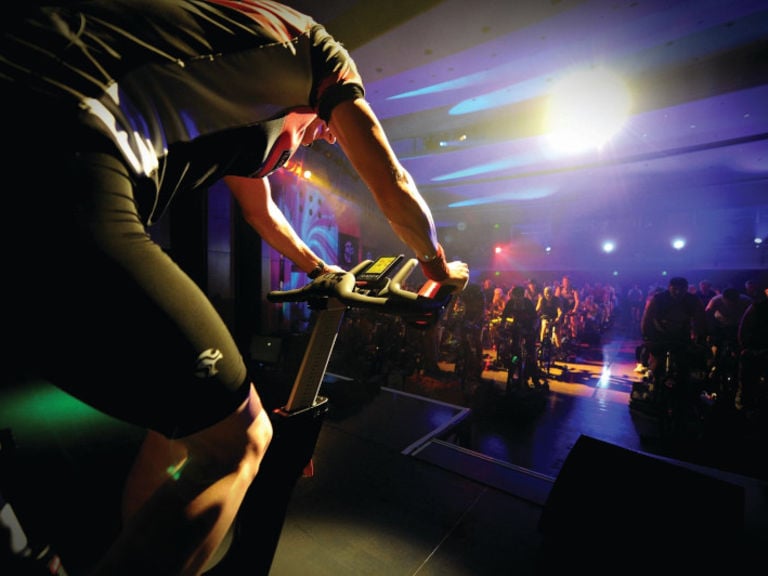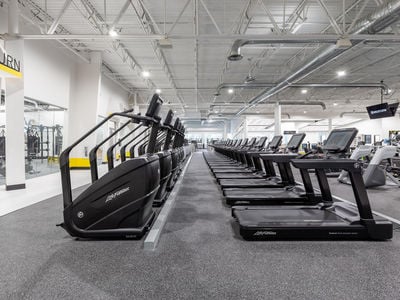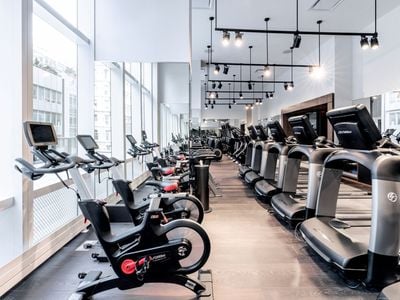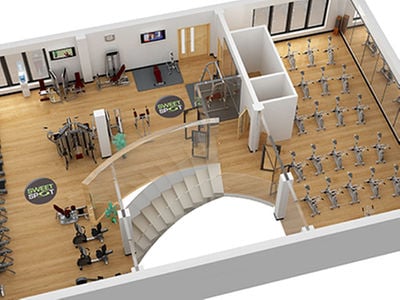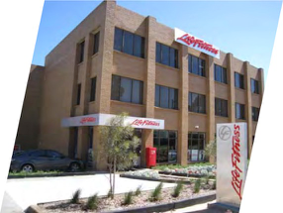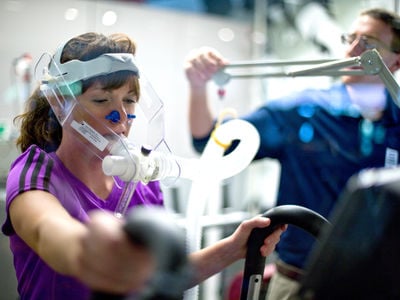Obesity can interfere with the biological process of building muscle post-workout.
Being obese makes it harder to build muscle even after exercising, a new study has found.
Researchers out of the University of Illinois at Urbana-Champaign looked at the effects of muscle protein synthesis after food, comparing obese people with people of an average weight.
“Several previous studies, including some from our lab, have shown reductions in muscle protein synthesis after food ingestion in obese adults compared with normal-weight adults,” said Professor Nicholas Burd, one of the study authors.
“Our new study goes further, showing there is an obesity-related impairment in building new muscle proteins in the fed state after a weightlifting session.”
The study
The researchers recruited nine obese and nine average-weight young people in their early 20s for the study. All participants were healthy but not active; none of them regularly exercised.
The participants’ body composition and glucose tolerance was measured before the intervention. In addition, the participants were given infusions of stable-isotope-labeled phenylalanine so that the researchers could track amino acid levels.
Researchers also took muscle biopsies from one leg of each of the study subjects.
Then using the opposite leg, each subject then performed four sets of 10-12 repetitions of a single-leg leg extension exercise.
After the exercise, all subjects ate 170g of lean ground pork. This amounts to 36g of protein, 4g of fat and 0 carbs. Then, the researchers collected more muscle biopsies, this time from both legs so they could use one leg as a control against the other.
Results
The results showed that there were expected differences between the obese and normal-weight groups. For example, the obese group had higher levels of plasma insulin concentration, a marker of insulin resistance and the obese group had a poorer metabolic quality, which impacted on their ability to exercise.
However, the most important result was what happened after the participants ate the lean pork. The rate of protein synthesis — the rate at which individual cells build specific proteins — were very different between the two groups. In particular, researchers were looking at myofibrillar protein synthesis, the process by which protein is taken up into the body and used to repair and build muscle tissue.
Despite the rates of myofibrillar protein synthesis increasing in both groups of subjects, the boost in the normal-weighted subjects was greater than those of the obese participants.
“We show that post-workout muscle building and repair is blunted in young adults with obesity,” said Professor Burd.
“This is significant because muscle building and repair after exercise has long-term implications for metabolic health and overall physical performance.”
The good news? Regular exercise will counteract the negative effects of obesity, and in time this will include improving muscle protein synthesis post-exercise.
Reference
Joseph W. Beals et al. (2018.) ‘Altered anabolic signaling and reduced stimulation of myofibrillar protein synthesis after feeding and resistance exercise in people with obesity.’
The Journal of Physiological. First published: 16 August 2018.
https://doi.org/10.1113/JP276210




